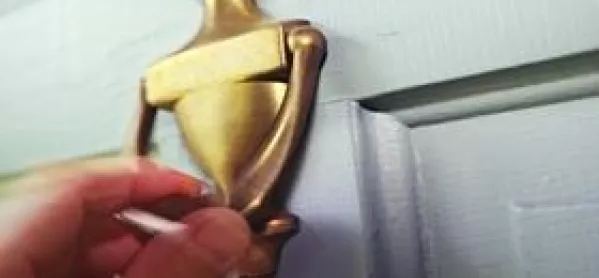Get tough, stick to your guns and be ‘relentless’

Any parent keeping their child out of lessons at Jubilee Park Primary, even because of illness, has learned to expect a knock on the door from headteacher Heidi Conner or one of her members of staff.
The policy at the school in Tipton, West Midlands, is part of a concerted effort to crack down on truancy and poor attendance. Even parents of pupils with perfect records receive visits.
And it appears to work. This no-nonsense approach has led to a rise in the school’s attendance rate, from 91.1 per cent in 2005 to 97.8 per cent this year.
Now the government’s behaviour expert, Charlie Taylor, has said that more primaries should be making this sort of effort to stop younger children being away from school.
Mr Taylor, who published his report on school attendance at the beginning of this week, wants a greater focus on tackling attendance problems among primary and nursery pupils. Teachers should be more vigilant about absence and should challenge parents who cannot provide a legitimate reason, he said.
The report claims that primary school teachers authorise absence rather than challenging it because this approach allows them to “avoid confrontation”. According to Mr Taylor, this means that there is no evidence to prosecute parents for non-attendance.
Mr Taylor - who is on sabbatical from the headship of a school for children with emotional and behavioural difficulties in West London - singled out Jubilee Park, which serves a community of predominately white, working-class families with high levels of deprivation, for praise in his report.
Ms Conner told TES that she experienced a “lot of verbal aggression” from parents when she introduced her tougher approach on her appointment in 2005. Now, however, children tell their families that they want to go to school.
“Before, there was a lot of parentally condoned absence and this wasn’t challenged,” she said. “But we’ve stuck to our guns. We’ve been relentless. You’ve got to be prepared to stand up and take the aggression.
“There’s been a lot of work to educate parents - for example, telling them that children with coughs, colds and headaches do not need to be off school. And I don’t authorise absence so families can take cheap holidays.”
Even nursery pupils are expected to have an excellent attendance record. Parents are interviewed if attendance falls below 95 per cent.
“Primary schools currently allow children to have twice as much time off for holidays and religious observance as secondary schools,” Mr Taylor said in his report. “They are often not thorough enough at analysing their data, spotting patterns of absence and dealing with them swiftly.”
Mr Taylor said that primary and nursery teachers should be acting where there are patterns of irregular attendance and then supporting parents so that children get back to school. Those with poor records often come from less wealthy homes and their attainment is lower than other pupils.
“Children (with better attendance) will feel more included in the life of their school and will experience academic and social success. This will mean fewer children become disillusioned with education and they will be less inclined to misbehave or to truant when they are older,” he said.
Mr Taylor recommended that headteachers should continue to exercise discretion in agreeing to term-time holidays, but that this should be the “exception rather than the rule”. He added that primary schools should analyse their data on attendance and quickly pick up on children who are developing a pattern of absence.
Other headteachers have also improved attendance by adopting a vigilant approach. At Our Lady of Victories Catholic School in Keighley, West Yorkshire, teachers have tried to make school attendance “cool” - for example, by producing wristbands for pupils to wear and awarding prizes for records of 100 per cent. Attendance of below 75 per cent is classed as “child neglect”, while 90 per cent or below is classed as “totally unacceptable”.
“If we have persistent absentees, we will pick them up from home. Some people might say that this isn’t doing parents any favours, but it does get children in the habit of going to school,” headteacher John Devlin told TES.
ATTENDANCE ADVICE Other recommendations from the report: Data about attendance in reception classes should be published along with local and national averages, and considered when Ofsted inspects a school. Ofsted should set specific, timed targets for improving attendance in schools where it is low. Parents who allow their child to miss too much school should receive a fine of pound;60. If they fail to pay within 28 days, the fine should be doubled to pound;120 and the money recovered directly through their child benefit. Social workers should work with schools in cases where parents persistently fail to send their child to school. Academy chains, sponsors and individual schools should be allowed to prosecute their pupils’ parents for poor attendance. Currently, only local authorities hold this power.
Keep reading for just £1 per month
You've reached your limit of free articles this month. Subscribe for £1 per month for three months and get:
- Unlimited access to all Tes magazine content
- Exclusive subscriber-only stories
- Award-winning email newsletters
